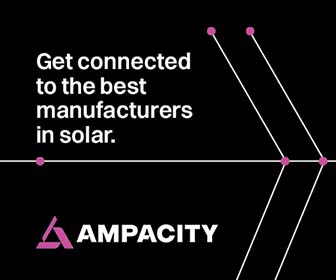N.C. Clean Energy Technology Center Releases Q1 Solar Policy Update to The 50 States of Solar
The N.C. Clean Energy Technology Center (NCCETC) released its Q1 2016 edition of The 50 States of Solar. The quarterly series provides insights on state regulatory and legislative discussions and actions on distributed solar policy, with a focus on net metering, community solar, residential fixed charges, residential solar charges, third-party ownership, and utility-led rooftop solar programs.
Key Solar Policy Actions in Q1 2016
The report finds that 39 states took some form of solar policy action during Q1 2016 (see Figure below). Specifically, the report finds that:
- 22 states considered or enacted changes to net metering policies
- 11 states and D.C. formally examined or resolved to examine some element of the value of distributed generation
- 7 states had policy action on community solar
- 26 utilities in 18 states proposed increasing monthly fixed charges on all residential customers. The median increase requested was 55%.
- 8 utilities in 5 states proposed adding new or increasing existing charges specific to rooftop solar customers
- 7 states had policy action on third-party solar ownership laws or regulations
- 3 states had action on utility-owned rooftop solar policies or programs
Autumn Proudlove, report co-author and Senior Policy Analyst at the NC Clean Energy Technology Center, noted, “Net metering has been – and still is – the dominant compensation mechanism for distributed solar, but there is a growing trend of states re-evaluating this policy, particularly the rate at which energy exported to the grid is compensated.”
Net metering policy changes were the most frequently considered type of change during Q1 2016. Nine states considered changes to the way energy exported to the grid in real-time is credited, highlighting a trend away from one-to-one offsetting of production and consumption. The report adds clarity to this shift by detailing the differences between net metering and “net billing.”
Achyut Shrestha, Policy Analyst at the NC Clean Energy Technology Center and a report co-author observed that, “The future of net metering looks very different from state to state. Hawaii and Nevada are moving away from net metering by reducing compensation for rooftop solar, while states such as New York and Maine are planning for a future beyond net metering with rates that preserve the rooftop solar value proposition and more precisely value its grid impacts.”
A total of 100 state and utility-level distributed solar policy and rate changes were proposed, pending, or enacted in Q1 2016. The report notes the top five policy developments of Q1 2016 were:
- Maine wrapping up its solar stakeholder process and moving forward on a net metering alternative;
- Florida’s utility-backed solar initiative making it onto the November ballot;
- California deciding to preserve retail rate net metering;
- Vermont releasing proposed net metering rules with major changes to its current policy; and
- Two separate studies related to solar valuation being filed in Arizona dockets.
Proposals by 35 utilities to increase fixed charges on residential customers were pending or decided during the quarter. Eight utilities in five states – half as many as in Q4 2015 – proposed new charges or increases to existing charges that are specific to solar or net metering customers.
To view the entire report, click here
The N.C. Clean Energy Technology Center











.png?r=8902)
